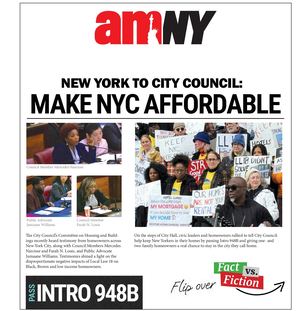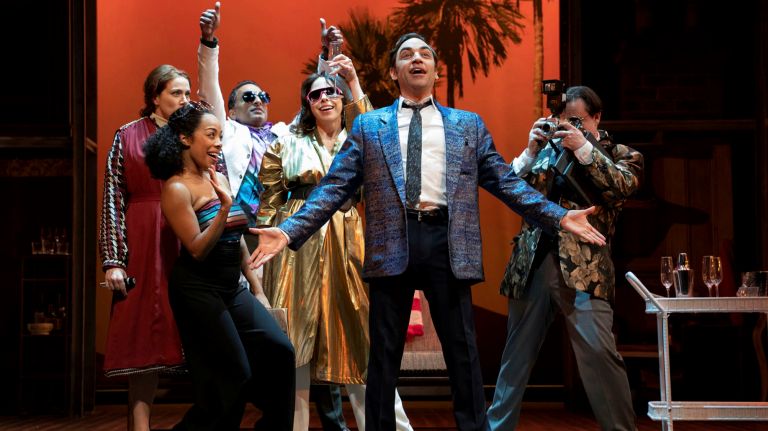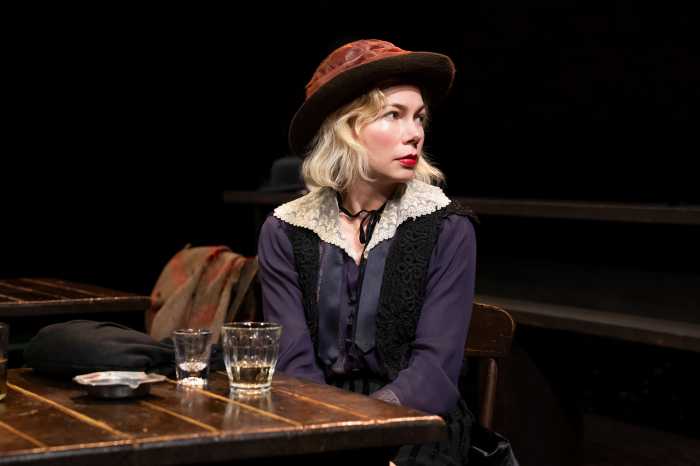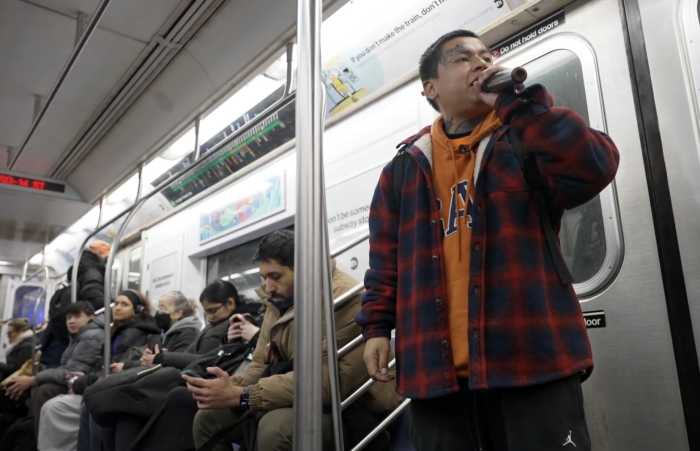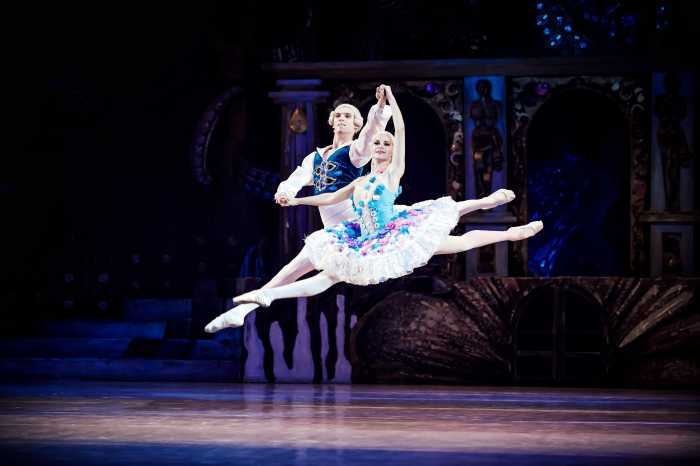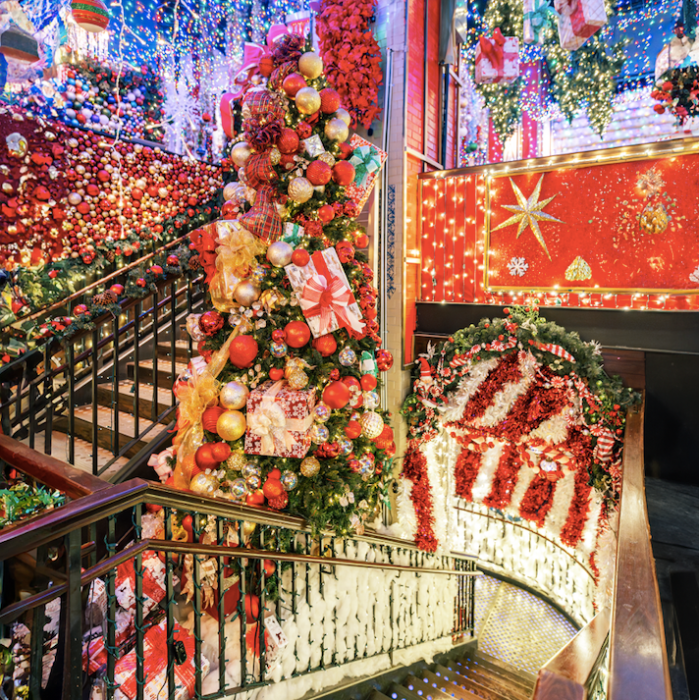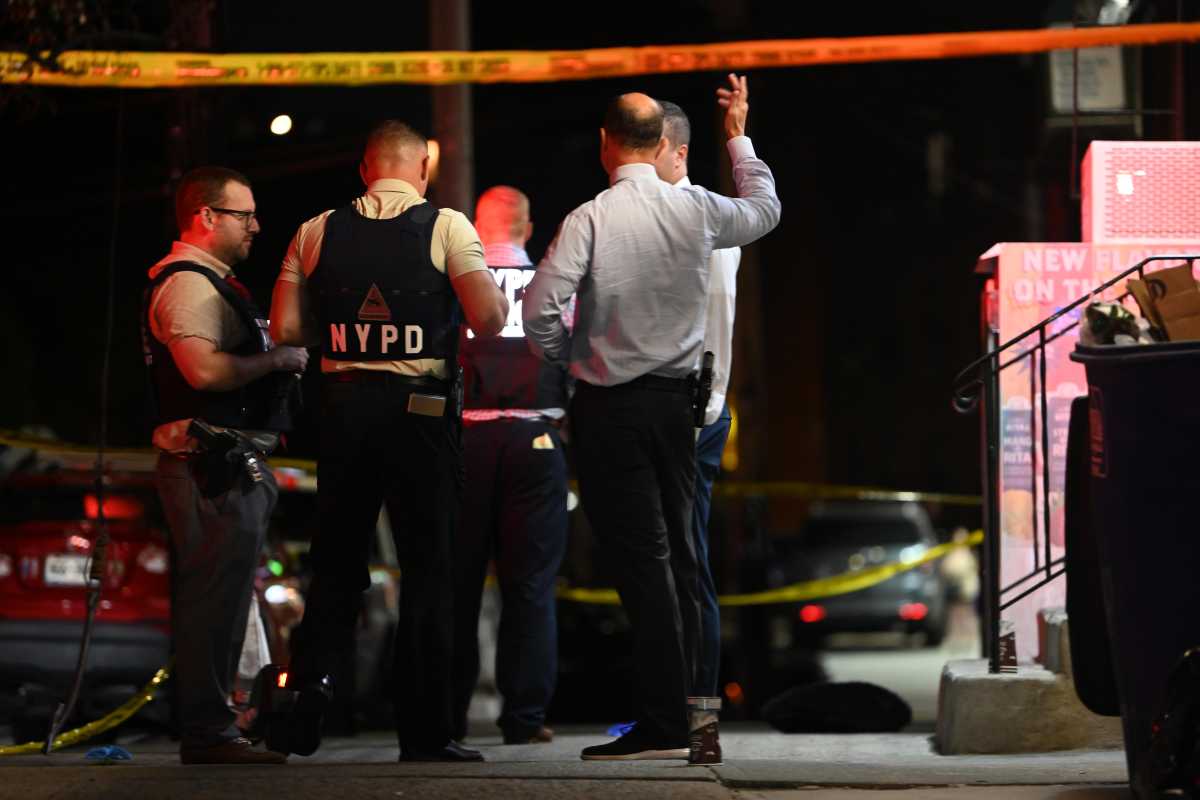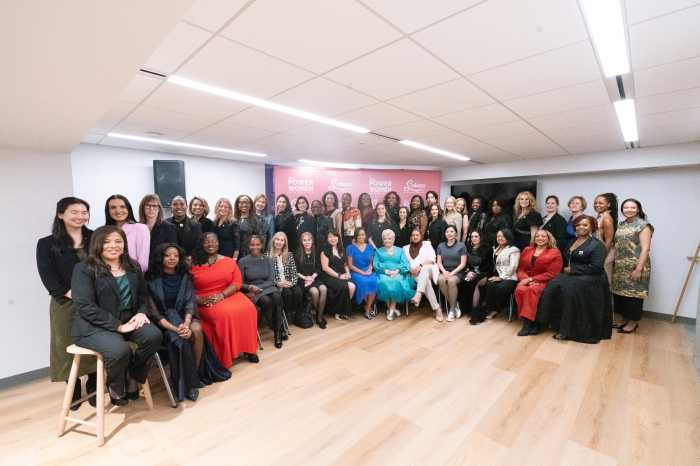
‘Merrily We Roll Along’ runs at the Laura Pels Theatre through April 7. 111 W. 46th St., roundabouttheatre.org.
Is it really accurate to still refer to “Merrily We Roll Along” as a flop?
Based on a 1934 play by Kaufman and Hart, with an exquisitely crafted and heartfelt score by Stephen Sondheim and original direction by Hal Prince, the musical ran only 16 performances in 1981, but it has gone on to receive numerous professional revivals.
For years, it was assumed that the Roundabout Theatre Company — which has revived many Sondheim titles over the past 25 years — would present the first Broadway revival of “Merrily” under the direction of James Lapine, but Lapine ended up staging “Merrily” instead at City Center Encores! in 2012.
In an unexpected move, Roundabout is finally doing its own production of “Merrily,” but at its Off-Broadway space with the tight-knit theater ensemble Fiasco, which specializes in Shakespeare but successfully presented Sondheim’s “Into the Woods” four years ago at the same space.
With a cast of just six actors (joined by an eight-piece orchestra) and a reduced running time (without an intermission), this is the most scaled-down major revival of “Merrily” to date.
It may not be the definitive “Merrily” (assuming there can ever be one), and anyone familiar with the show will probably miss its dynamic original orchestrations and smashing overture. Many scenes are vocally underpowered and underpopulated. But on the whole, the production (directed by Noah Brody, co-artistic director of Fiasco) is theatrically effective, smart and emotionally wrenching.
As a longtime “Merrily” fan, I walked into the production with a lot of hesitation, which I continued to have for the first 10 minutes or so, but very quickly fell under its spell and found myself fully engaged and satisfied.
As “Merrily” begins, Franklin Shepard (Ben Steinfield, who succeeds in making the character sympathetic) is a former composer turned film producer and his longtime pal Mary Flynn (Jessie Austrian, alternatively nasty and quirky) is a best-selling author turned bitter alcoholic. Frank is no longer on speaking terms with his former songwriting partner Charley Kringas (Manu Narayan, on edge and full of self-righteous anger), who refused to condone Frank’s pursuit of financial success.
Scene by scene, we travel chronologically backward and watch what led to the dissolution of Frank’s marriage and friendship with Charley. Eventually, Frank evolves back into a happy, innocent youth who believed that his songs would change the world. “Our Time,” an anthem of idealism and hope that serves as the finale, is ironically devastating given our knowledge of what lies ahead in Frank’s future.
In terms of the never-ending saga of “Merrily,” this is a production that looks both backward and forward. In addition to incorporating some long-discarded content from the original Broadway production and even the 1934 play, there is an informal, direct quality to the production that evokes Hal Prince’s original concept of youths engaging in role play and performing a moralistic drama in front of adults.
Derek McLane’s set design is both literal and abstract, evoking a backstage area full of props, costumes and equipment, which will be used by the cast throughout the performance, including an old-fashioned television studio “applause” sign and rolling chairs (which are brilliantly utilized at one point to evoke feelings of speed and flying). Also present is a sign for the Alvin Theatre (now the Neil Simon Theatre), home of the original production of “Merrily.”
Most critical to its success, the production brings to the forefront the three-way friendship of Frank, Mary and Charley and conveys the overwhelming insecurity of every character. Frank (often considered a jerk) is seen as well-meaning but too passive to stand up for himself, leading to his ultimate downfall.
